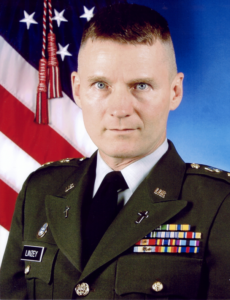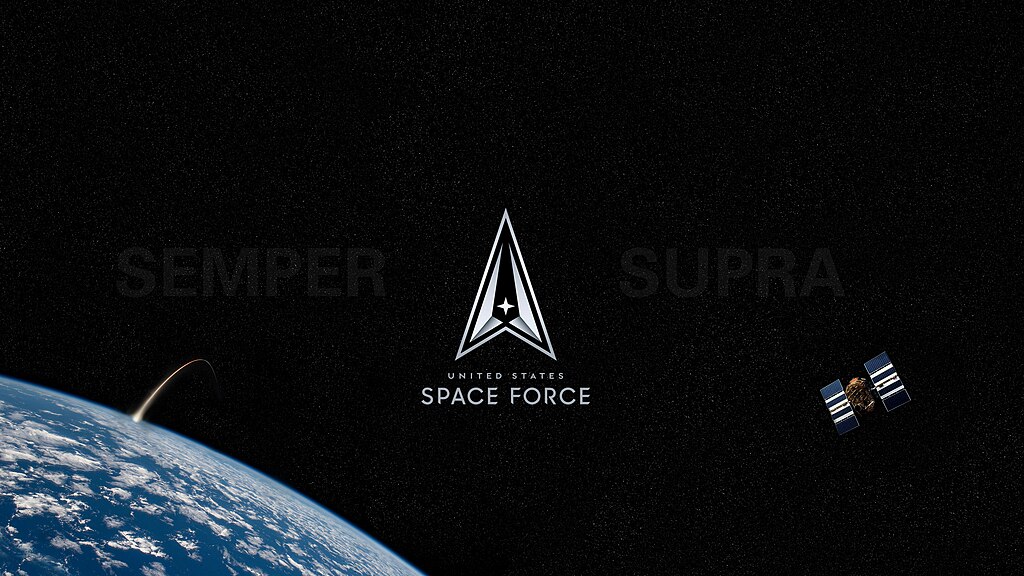
It’s common for military branches to have themes or official hymns, but did you know the United States Space Force just revealed theirs? More importantly for a Christ-centered audience, the author was “inspired by awe and wonder of God.”
The name of the United States Space Force Hymn is “Creator of the Universe.”
Captain James F. Linzey is a retired chaplain for the U.S. Air Force. Months following the inception and inauguration of the United States Space Force by then President Donald Trump, Linzey wrote a song of praise to God following a Godly experience during a war re-enactment.
Linzey claims he “saw the price of freedom” that day, and later wrote what has been considered as the Space Force hymn.
Following Linzey’s 24 years with both the U.S. Air Force and U.S. Army, he follows a passion to discuss and publish God’s Word. Today, he is the chief editor of the “Modern English Version” Bible translation and decorated author of several books.
Although “Creator of the Universe” was not directly commissioned by the newest branch of the military, it is now considered a hymn for the United States Space Force by the Military Bible Association.
Psalms, Hymns and Spiritual Songs

In Ephesians 5:19, Paul writes the difference of ways to “sing and make music from your heart to the Lord.” At times, these could be considered synonyms for one another, but they are different.
Even the United States Armed Forces understands this designation.
- Much like the book in the Bible, any book of psalms is a collection of songs or words of prayer. They aren’t isolated to Christianity, as many prayers of notable faiths are placed to music for worship and memorization.
- The difference between a psalm and a hymn is one is written as a prayer and the other is written as a song of praise. Hymns, like most songs, have verses, stanzas, and a chorus section.
- Spiritual songs, known in charismatic circles as “Songs of the Spirit,” are impromptu or inspired moments of worship that share personal responses to God for his grace, mercy, and love.
How does the military fall into this distinction? There is a difference between psalms (or songs) and hymns–a religious one. Because one may influence a moment of faith to someone without a dogmatic belief, hymns are “not commissioned” by the military.
Military hymns are more organic as civilian churches connect particular songs to a branch of the military. There is a difference, which is what makes “Creator of the Universe” more of a honor than a distinction. Linzey’s work joins other hymns:
- “Lord, Guard and Guide the Men Who Fly” (U.S. Air Force)
- “Eternal Father, Hear our Prayer” (U.S. Army)
- “Ruler of the Land and Sea” (U.S. Coast Guard)
- “Eternal Father, Strong to Save” (U.S. Navy)
- “Serving for Thee” (U.S. Marine Corps)
If those don’t sound familiar, you may be thinking of the military psalms or songs, which are not directed toward a deity. They include:
- “Wild Blue Yonder” (U.S. Air Force)
- “The Army Goes Rolling Along” (U.S. Army)
- “Semper Paratus” (U.S. Coast Guard)
- “Anchors Aweigh” (U.S. Navy)
- “Halls of Montezuma” (U.S. Marine Corps)
- “Semper Supra” (U.S. Space Force)
Always Above
With the Body of Christ becoming the impetus behind a military hymn, the Military Bible Association is working with Linzey to get America familiar with “Creator of the Universe.”

He encourages churches, military members, connected families and allies to download the sheet music, recording, and video of the hymn for worship services, patriotic events, or personal use.
- Sheet music download: CreatorOfTheUniverse
.com - Audio download: https://we.tl/t-
x1bul0RFOs - Video download: https://we.tl/t-
4xkAz7jl2G - YouTube: https://www.youtube.
com/watch?v=CrrgkHBfDqw
In an article with the Baptist Press, Linzey spoke about his hymn for the United States Space Force and its inspirational premise.
“The chaplaincy and the spiritual aspect of the Air Force Space Force involving space travel is the heart of the Space Force hymn, asking the Creator of the universe for safety on each flight,” Linzey said.
“Without the freedom to pray for and with military personnel and provide them the Bible in a vernacular lasting far into the future, there is no freedom left. These freedoms are the basis of all others, and are the freedoms for which we live and die.”


